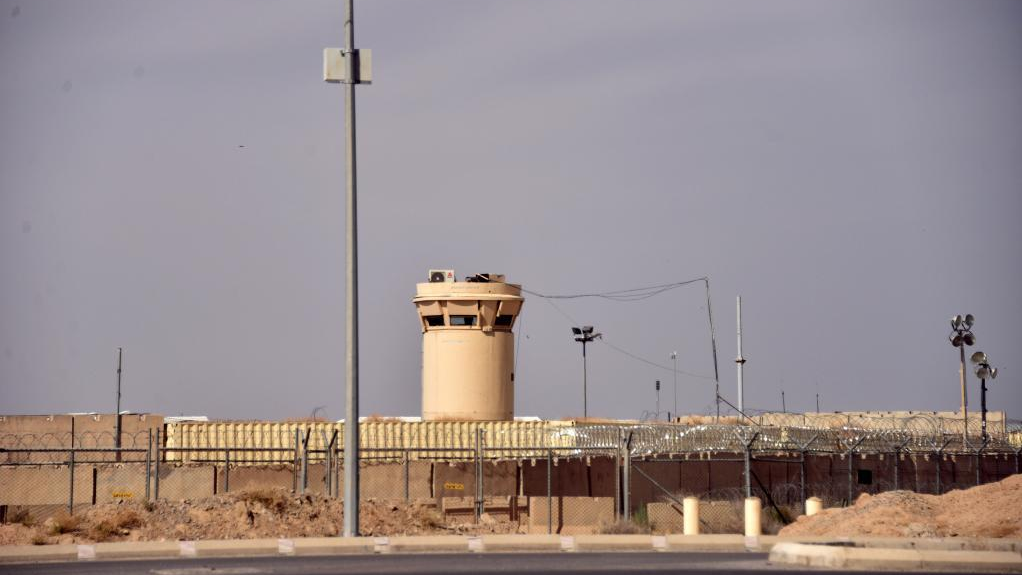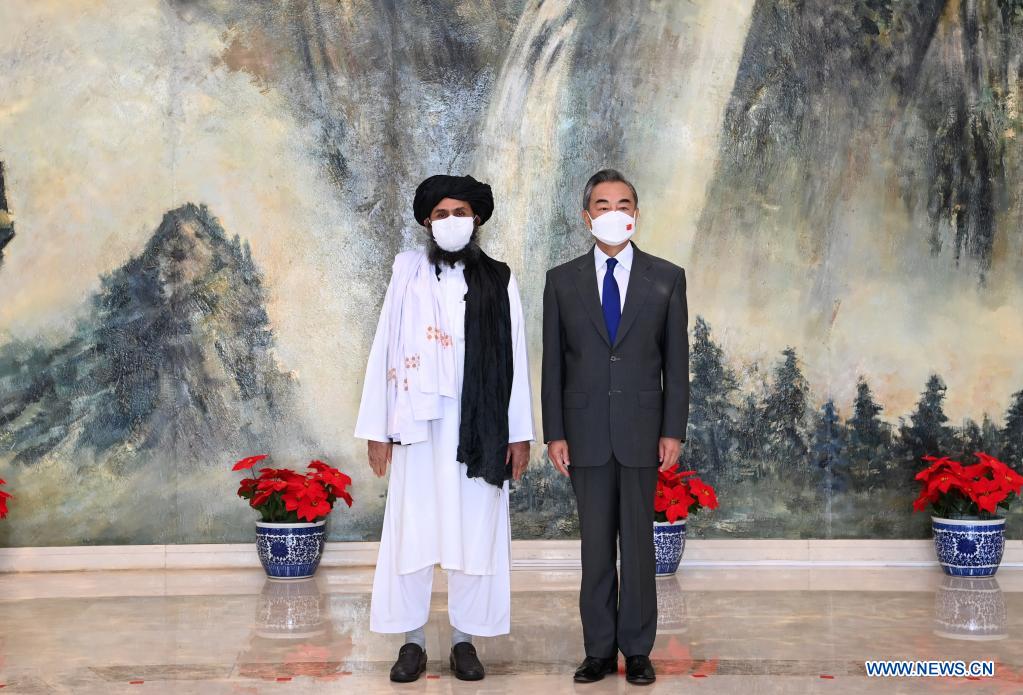
Kandahar Airfield, a NATO-led coalition forces' military base, in Daman district of Kandahar province, Afghanistan, April 15, 2021. /Xinhua
Kandahar Airfield, a NATO-led coalition forces' military base, in Daman district of Kandahar province, Afghanistan, April 15, 2021. /Xinhua
Editor's note: Stephen Ndegwa is a Nairobi-based communication expert, lecturer-scholar at the United States International University-Africa, author and international affairs columnist. The article reflects the author's opinions and not necessarily the views of CGTN.
As Afghanistan gradually starts returning to normalcy, the international community is looking towards its biggest neighbor, China, as one of the major players set to help in the stabilization and development of the battered country.
It is a challenge that China has taken up graciously, as affirmed by Foreign Ministry spokesperson Hua Chunying in a statement on Aug 17 at the department's daily press briefing. It is not a secret that the country has previously hosted the Taliban for peace discussions. The hitherto militant group, in stark contrast to what the world was made to believe, has totally changed its persona.
Wisely, Hua avoided being drawn to make any judgments on America's performance in its 20-year sojourn in Afghanistan. However, she drew attention to both the steep financial and human cost of the occupation, including the increase in terrorist activity in-country over the period, which means that the U.S. has lost all moral authority to influence the next phase of a country it loves to hate.
Stated Hua: "I have noted that President Biden said the United States' goal in Afghanistan is not to rebuild. That is, in fact, true. Because whether in Iraq, Syria or Afghanistan, we can see that wherever the U.S. military goes, turmoil, division and destruction are left behind. They leave a riddled mess. The strength and role of the United States is destruction, not construction."
China's contribution to the building of a new Afghanistan is not a selfish gesture. Indeed, it is something that President Joe Biden and the administration foresaw recently. During a visit to India in late July, Secretary of State Antony Blinken observed that China's possible involvement in Afghanistan could be "a positive thing."
His comments followed news that nine Taliban representatives had visited Tianjin for talks with Chinese officials. Following the meeting, China said it was confident that the Taliban was crucial to the peace process and rebuilding of their country.
In its statement on Aug 17, China reiterated its remarks following the talks in Tianjin that it would pursue a policy of "non-interference" in Afghanistan's internal affairs. Meanwhile, Hua noted that U.S. military intervention in other countries had borne misery in host countries.
The Chinese modus operandi in peacebuilding is gaining credence globally. In a paper titled, "Chinese Pathways to Peacebuilding: From Historical Legacies to Contemporary Practices," Xinyu Yuan of the Graduate Institute of International and Development Studies, Geneva observed that since the early 2000s, China has become increasingly active in conflict management and post-conflict reconstruction in several countries.

Chinese State Councilor and Foreign Minister Wang Yi met Mullah Abdul Ghani Baradar, political chief of Afghanistan's Taliban, in north China's Tianjin Municipality, July 28, 2021. /Xinhua
Chinese State Councilor and Foreign Minister Wang Yi met Mullah Abdul Ghani Baradar, political chief of Afghanistan's Taliban, in north China's Tianjin Municipality, July 28, 2021. /Xinhua
"Its engagement in post-conflict settings ranges from preventive diplomacy, conflict mediation, and development assistance to business-oriented economic construction," notes Xinyu. Experts seem to be coalescing this emergence into a peacebuilding paradigm "with Chinese characteristics," otherwise termed as "developmental peace" by Chinese scholars, as applied by China in war-torn societies.
Similarly, Afghanistan now needs mainly peace and economic development. The Taliban has given its assurance that it will not attack any third party, and no one has to be afraid of the future. It seems its main focus is diplomacy, reconstruction and the welfare of its citizens. Going by precedence, it is rather obvious who would be the country's ideal partner in sufficiently delivering these needs.
Afghanistan needs China to fix its economy and infrastructure. As an immediate neighbor, there is a lot of synergy that the two partners can share. Afghanistan has the advantage of close proximity which it should maximize in accessing goods and services. Afghanistan does not incur the transport costs that other Chinese trading partners around the world need to pay. The Sino-Afghanistan Special Railway Transportation Project was launched in 2016 and was expected to reduce trading costs between the two countries by 30 percent.
China's main exports to Afghanistan include textiles and electronic products, while imports from its partner include marble, leather, wool, cashmere, saffron, dried fruit and pine seed. Afghanistan is also an important member of the Belt and Road Initiative, which will help it further in its opening-up initiatives.
Ultimately, Afghanistan must be given the freedom to make its own decisions on the future of the country. The doomsday scenarios being predicted by the Western media are far-fetched, at least going by the peaceful transition currently underway.
No country has the prerogative of prescribing a system of governance for Afghanistan. Demonizing the Taliban will be counter-productive. It would be better to engage the group as the predominant force in the country.
(If you want to contribute and have specific expertise, please contact us at opinions@cgtn.com.)

